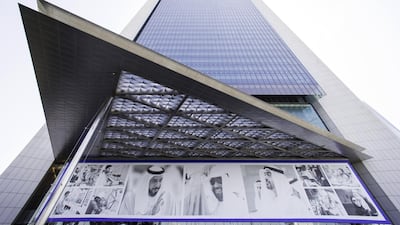Adnoc’s new strategic oil and gas plan, announced by the Supreme Petroleum Council (SPC) on Sunday, is an important response to long-term world market imperatives. The gas part of the programme is designed to meet key domestic needs and Abu Dhabi has raised the stakes for its colleagues and competitors.
The key point is that Abu Dhabi will move ahead of nearly all of its fellow Opec members in decisively increasing oil production capacity, which is set to rise from a targeted 3.5 million barrels per day (bpd) by the end of this year, to 4 million in 2020 and 5 million in 2030. Only three countries worldwide – the US, Russia and Saudi Arabia – can currently produce as much as 5 million bpd, with Iraq and Canada just under.
The International Energy Agency forecasts that Opec needs to add about 3 million bpd of production by 2022. Opec itself sees the need for its crude rising by only 1.9 million by 2030 to 4.8 million bpd by 2035 as US tight oil becomes exhausted.
The question is, who will meet this extra demand? Only three or four Opec states have the capability to strongly expand output: the UAE, Iraq and Saudi Arabia, and perhaps Kuwait. Saudi oil minister Khalid Al Falih has said his country has not yet decided whether to raise capacity to 13 million bpd from the current 12 million. Former Iraqi oil minister Jabbar Al Luaibi has claimed a boost from just under 5 million bpd today to 7 million bpd by 2022, but this is heavily constrained by logistics and lack of progress on infrastructure.
Finally, Kuwait wants to reach 4 million bpd capacity by 2020 and to keep it there to 2030, from 3.15 million bpd today. But though it has made progress on expanding light and extra-heavy oil output, it is held back by domestic politics.
Meanwhile, of the other Opec players, Iran is hampered by sanctions, Venezuela is in economic free-fall, and Libya’s production has recovered significantly but its politics remain chaotic. Nigerian security remains a problem though it could boost deepwater output. Algeria, Qatar and Angola are in long-term decline as fields mature, and the other members are too small to matter.
_______________
Read more:
Amid a tightening world market and global diplomatic tensions, the oil trade is a balancing act
New wave of energy independents may change oil landscape
_______________
The SPC’s announcement, therefore, represents a realisation that the capable members of Opec are going to have to step up. They have market share and revenues to gain – another $40 billion or so annually for Abu Dhabi by 2030 if oil prices remain around current levels. They want to avoid price spikes that would damage the world economy and demand for oil, and accelerate the adoption of electric vehicles. And they have the opportunity to cement their dominance further over Opec policy.
The gas side of the plan is not so striking, and has been already quite well described by the company. The SPC, which oversees Adnoc, also announced the company had made new discoveries of 1 billion barrels of oil and 15 trillion cubic feet of gas in place. And the five-year strategic plan from 2019-23 will invest $132 billion, of which $45 billion is for “downstream” (oil refining and petrochemicals).
Abu Dhabi has about 92 billion barrels of oil reserves and 194 trillion cubic feet of gas officially, comprising the vast bulk of the UAE’s reserves. Of the new discoveries, about 40-50 per cent of the oil and 70 per cent or more of the gas may be recoverable, depending on the nature of the reservoir (the rock formation) that holds it, and the production technology applied.
However, references to new sources of gas include “unconventional” gas, held in shales or other rocks of low permeability, where the amount of gas that can be recovered is much lower, perhaps 20-40 per cent at best in US experience.
Abu Dhabi has no immediate need for new oil reserves to meet its targets – at the planned 2030 rate of extraction, they would last for 50 years. But extra gas – particularly if it is not a by-product of oil extraction, or “sour”, which contains large volumes of toxic, corrosive hydrogen sulphide – is important. Energy minister Suhail Al Mazrouei has targeted gas self-sufficiency, which would allow expanding exports as well as feeding the major new petrochemical facilities.
The overall budget of $132 billion, or $26 billion on average annually, compares to a company such as Shell with capital expenditure of $25-30 billion each year. Shell produces about 3.7 million barrels of oil equivalent per day, compared to Adnoc’s approximately 5 million barrels of oil equivalent currently. But Adnoc’s giant fields, with well-developed infrastructure and onshore or in shallow waters, are much lower-cost than an international firm’s portfolio of remote Arctic or deepwater developments, shale, mature North Sea assets, or massive liquefied natural gas projects.
So proportionately, this represents an exceptionally active investment programme. Spending it wisely and keeping costs and schedules under control will be a test of the success of Adnoc’s wide-ranging transformation programme. The downstream investments alone are intended to add 1 per cent annually to GDP. If more locally-based companies are able to win contract work and perform well, the spin-offs for the national economy can be tremendous.
Robin M. Mills is CEO of Qamar Energy, and author of The Myth of the Oil Crisis


